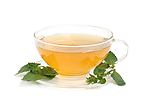 Green tea is a pretty amazing beverage when it comes to your nutritional health. It has antiviral, anti-cavity, and anti-allergy properties and could prevent cataracts. Green tea has also been promoted by nutritionists as a beverage that could lower your blood pressure, keep your heart healthy, and help prevent cancer. Now, in the latest health news, researchers are claiming that tea could reduce your risk of developing arthritis by fighting inflammation.
Green tea is a pretty amazing beverage when it comes to your nutritional health. It has antiviral, anti-cavity, and anti-allergy properties and could prevent cataracts. Green tea has also been promoted by nutritionists as a beverage that could lower your blood pressure, keep your heart healthy, and help prevent cancer. Now, in the latest health news, researchers are claiming that tea could reduce your risk of developing arthritis by fighting inflammation.
In a recently conducted clinical trial, researchers began with the premise that a number of factors including inflammation and oxidative stress are believed to play a role in the development of chronic joint diseases. They went on to investigate extracts of green tea and the polyphenols present in them. They found that these polyphenols can be shown to inhibit the inflammatory responses in vitro in different cell types and the development of arthritis in animal model studies. In particular, they found “considerable evidence” that (-)-epigallocatechin-3-gallate (EGCG), the predominant green tea polyphenol, inhibits enzyme activities and signal transduction pathways that play important roles in inflammation and joint destruction in arthritis.
Green tea may very well be a viable alternative cure for banishing painful inflammation associated with arthritis. The tea is thought to contain more than 4,000 chemical compounds. But the ones that are most important to your health are the flavonoids. These flavonoids are the same type found in red wine and berries. There are about 316 milligrams of flavonoids in a cup of green tea. The most potent flavonoid is one with the long name mentioned in the study — “epigallocatechin gallate” — but we’ll just call it EGCG. EGCG is a type of flavonoid known as a catechin. Research has shown that catechins are more effective antioxidants than even vitamin C and E.
Now — a few tips for making a good cup of green tea: steep for three minutes to release all the health-promoting compounds. And researchers say that tea packed in tea bags actually releases more polyphenols than loose leaves. Apparently the tea in tea bags tends to be broken down into smaller particles, helping more polyphenols to be dissolved in the hot water.
